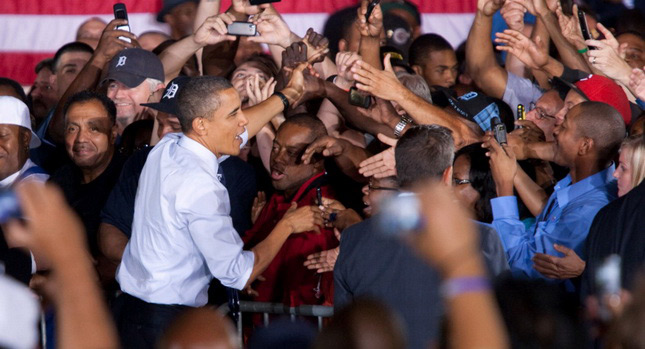During the 2009 bailout of General Motors and Chrysler under the Troubled Asset Relief Program, the U.S. Treasury Department injected US$79.7 billion in the two automakers, US$51 billion of which went to GM.
The bailout has been a hotly debated issue, with Republicans claiming that the Obama administration had spent taxpayers’ money, Democrats responding that it was the right thing to do.
As the recent elections have proven, it wasn’t an argument worth pursuing, especially in the Midwestern states. However, now that he has been re-elected, President Obama is faced with a dilemma.
Currently, with GM having paid back US$24 billion, the U.S. Treasury owns 500 million shares, or 32 percent of GM stock that it would like to unload. GM, after securing a US$11 billion revolving credit line on November 5, certainly has the liquidity to buy.
There you have it: an eager seller and an eager buyer. What more could you ask for?
The problem is that, with GM stock trading at US$25.03 on November 7, if the Treasury were to sell, it would lose a massive US$14 billion. That certainly would not sit well with taxpayers and at the same time would lower the company’s stock price.
“You have one shareholder who is a likely seller and owns a third of the stock”, Matthew Stover, an analyst with Guggenheim Securities in Boston told Bloomberg. “Investors see and think, ‘Look out below!’”.
The most likely scenario is that the government will offload its shares progressively, as it has done in other TARP-funded companies like banks and the American International Group insurer.
Philip Swagel, assistant Treasury secretary for economic policy in the administration of President George W. Bush (who initiated the bailout before the end of his presidency) believes that the controversy over whether the bailout was the right thing to do will never go away.
He added that the government will never fully recuperate the money it has poured in GM.
“They can’t wait for the shares to turn a profit because they know it’s not going to happen”, he told Bloomberg. “They will wait a reasonable time period after the election, as people focus on the fiscal cliff and tax reform. Then they’ll start to sell off the shares.”
The Treasury’s assistant secretary for financial assistance Timothy Massad, stated in an email: “Going forward, as with all our investments, we’ll continue to balance exiting as soon practicable and maximizing value for taxpayers”.
GM reported that it has achieved its highest-ever October sales in the U.S. market since 2007 with 195,764 deliveries, which equals to a 5 percent increase compared to 2011. Third-quarter earnings rose by 4.3 percent to US$2.3 billion before interest and taxes, beating estimates by 55 percent. That’s excluding its European operations, which are currently undergoing a massive restructuring.
By Andrew Tsaousis
PHOTO GALLERY




